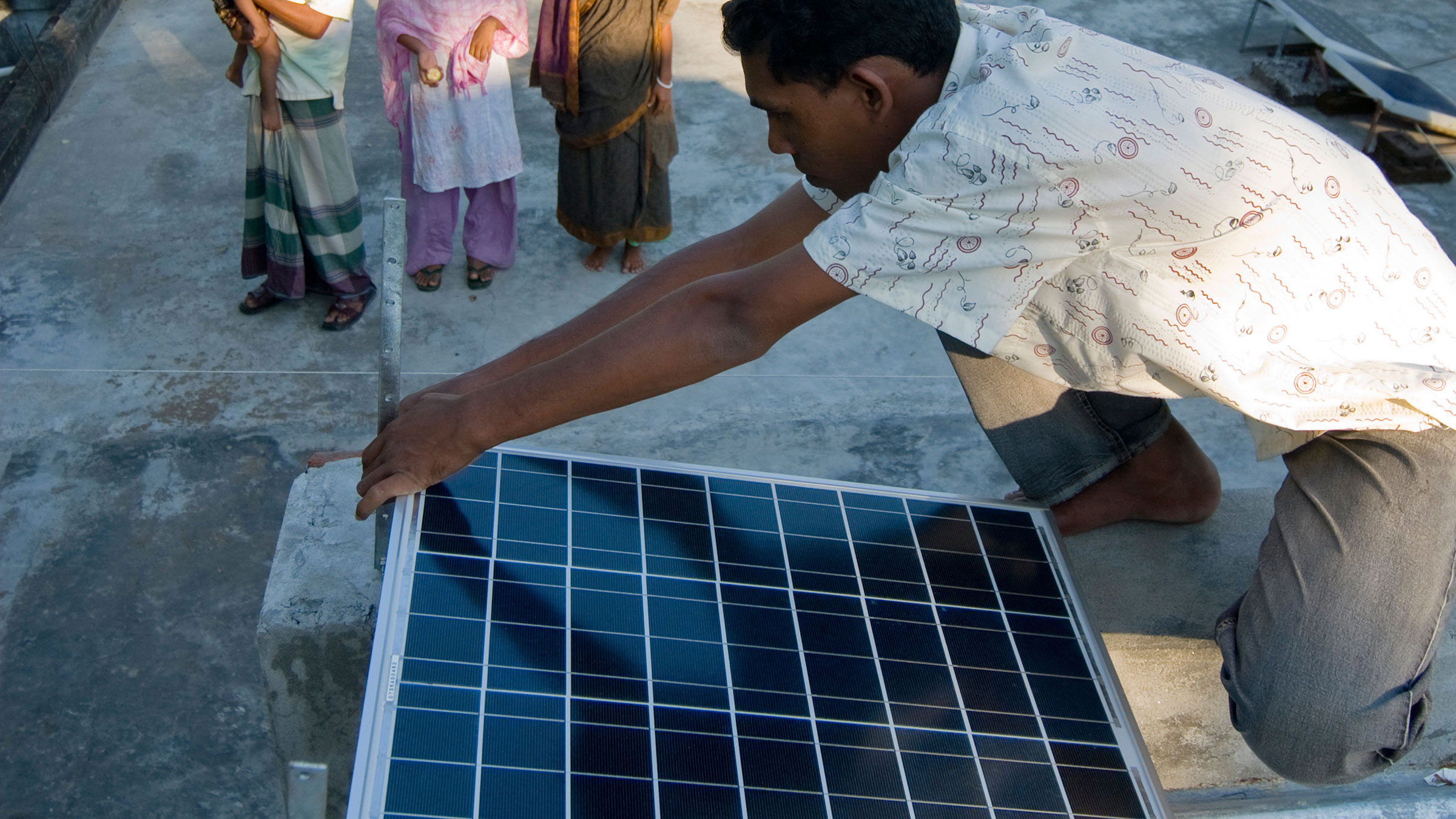Climate impact
Solar home systems have been installed in 3.8 million houses in Bangladesh, serving 13 million people, or a quarter of the off-grid population. Since 2002, these systems have displaced an estimated cumulative 220 million litres of kerosene, reducing emissions by about 0.58 Mt.
Scaling up comparable levels of solar power for off-grid populations in similar countries would result only in modest emission savings, estimated at 3 Mt in 2030, reflecting the low energy use of such communities. However, it would provide affordable low-carbon power to around 200 million people with currently no grid access.

Success factors
Bangladesh established a national programme to support the use of solar home systems in areas where the electric grid was least accessible. The programme is managed by the state-owned Infrastructure Development Company (IDCOL). IDCOL certifies solar equipment and partner organisations (POs) which install and maintain solar systems. IDCOL also provides consumer credit, to reduce monthly payments to affordable levels for rural customers.
The POs offer a range of solar module products, from 10 watts to 135 watts, to suit a range of income levels. IDCOL receives funding from government and donor organisations to subsidise the price of solar systems and to refinance consumer credit.
Costs
Solar home systems save money over their lifetime, as they substitute for expensive fuel in kerosene lamps. As a result, they have a net negative emission abatement cost of approximately –230 $/tCO2e. The estimated annual savings created by scaling up solar home systems could be $930 million in 2025 and $690 million in 2030.

Co-benefits
Besides reduced carbon emissions, off-grid solar power provides the critical benefit of modern energy access for people living in rural and deprived areas. With electricity, small businesses can stay open longer and children study better. Provision and maintenance of solar home systems also employs around 115,000 people in Bangladesh.
Replacing kerosene lamps reduces indoor air pollution, and a lower incidence of respiratory diseases has been observed in Bangladesh. Women who work at home particularly benefit. Electricity access can also reduce the fire hazard of using kerosene lamps.
Barriers and drivers
- The biggest barrier to an up-scaling of solar home systems is poor access to financing. In Bangladesh, funding from donors has reduced capital costs.
- Another barrier is insufficient awareness among rural households, addressed through public campaigns.
- Soft infrastructure to improve local know-how and address supply chains is also needed. IDCOL provides technical assistance and capacity building.
